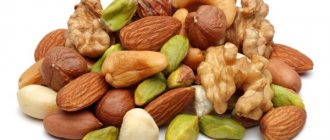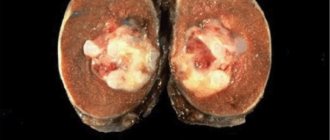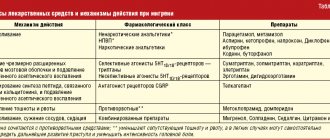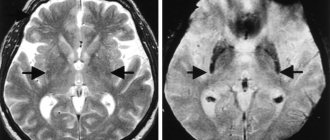Attention!
The information in the article is for reference only and cannot be used for self-diagnosis or self-medication. To decipher the test results, contact a specialist.
Previously, this condition was considered normal age-related changes that accompany the aging of the body. Now they are trying to identify it in patients as early as possible in order to slow down the process of neuron degradation with the help of drugs.
Alzheimer's disease - what is it?
Alzheimer's disease is a progressive form of senile dementia that leads to the loss of cognitive abilities. It belongs to the group of acquired neurodegenerative pathologies. The disease occurs more often in patients over 65 years of age. Forms that begin before 60 years of age are less commonly noted. The disease develops gradually and unnoticed.
The patient first develops short-term memory and attention disorders. Then the symptoms increase steadily. A person's attention, memory, and speech are severely impaired. The patient cannot develop new skills and reproduce old ones. His psychomotor coordination is impaired and his time orientation suffers.
The patient is disoriented in space, place and self. Identifies thought disorder. All pathological processes are caused by the destruction of brain cells. There are two types of Alzheimer's disease. The first is an early onset of the disease with the onset of clinical manifestations after 65 years, the second type with the onset of symptoms before 65 years.
The diagnosis is made based on the clinical picture after excluding diseases with a similar clinical picture. The diagnosis is confirmed posthumously during an autopsy. The number of neurofibrillary tangles and senile plaques is determined.
Prevention of Alzheimer's: drugs
Unfortunately, drugs have not yet been developed to prevent Alzheimer's disease, since the exact cause of this pathology cannot be reliably identified.
Prevention includes measures to improve overall health and improve brain function:
- Balanced diet;
- Moderate physical activity;
- Active lifestyle;
- Mental activity;
- No bad habits (smoking, drinking alcohol, drugs);
- No stress.
Stages
The course of the disease is divided into four phases, with a progressive clinical picture with cognitive and functional impairment. The following stages are distinguished:
- Predementia. The first manifestations of Alzheimer's disease are often similar to a reaction to stress or normal age-related changes. Changes in cognitive function are detected eight years before the advanced stage during neurocognitive testing. Problems begin with the inability to assimilate new information. Patients cannot concentrate. Planning suffers and cognitive flexibility is lacking. Abstract thinking is impaired, semantic memory is reduced.
- Early dementia. Progressive memory deterioration and impairment of all types of perception in Alzheimer's disease lead to confirmation of the diagnosis. Memory declines unevenly. Old memories of your life and long-learned facts are preserved. Recently learned facts are quickly forgotten. Speech disturbances appear. Defects in executive functions, motor disorders, and perception disorders occur. Vocabulary depletion occurs and speech fluency decreases. Clumsiness appears when using fine motor skills, and problems with coordination increase. The person is able to perform only simple tasks independently.
- Moderate dementia. Patients experience progressive deterioration of their condition. The possibility of independent action is reduced. Speech disorders become obvious, and the vocabulary is sharply depleted. The person misunderstands the meaning of the word. Reading and writing skills are lost. Coordination is impaired during complex sequential movements. The person cannot cope with most ordinary tasks. The patient does not recognize close relatives. Long-term memory deteriorates. Neuropsychiatric changes appear - irritability, wandering, emotional lability, spontaneous aggression.
- Severe dementia. At this stage of the disease, the patient is dependent on outside help. He uses single phrases and words when communicating. Then speech disappears completely. The reaction to emotional appeals to them remains. Sometimes episodes of aggression occur, which are replaced by apathy and exhaustion. Even the simplest actions are impossible without outside help. The patient's muscle mass decreases. He moves with difficulty, often unable to get out of bed.
Death occurs from associated causes - pressure ulcers, pneumonia and other diseases.
Causes
A single factor responsible for the occurrence of Alzheimer's disease has not been identified. It is believed that there is a hereditary predisposition to the disease. Several hypotheses for the formation of changes in the brain are now being put forward:
- Cholinergic. Cognitive deficits are associated with decreased production of the neurotransmitter acetylcholine. The theory is considered outdated, but it is not completely abandoned.
- Amyloid. The main factor in the development of changes in the brain in Alzheimer's disease is considered to be the deposition of beta-amyloid protein in its tissues. A mitochondrial DNA defect is found in half of the patients. The gene encoding its formation is located on chromosome 21. The early onset of the disease is associated with defects in the PSEN1, APP, and PSEN2 genes. Beta-amyloid plaques appear in the brain, slowing down the speed of cognitive reactions. This hypothesis is recognized as the main one. Amyloid accumulation sets off a chain of neurodegenerative disorders.
- Tau hypothesis. It is believed that a cascade of pathological changes initiates a deviation in the structure of the tau protein. In it, hyperphosphorylated threads are connected. Neurofibrillary tangles are formed in neurons. Then the disintegration of microtubules occurs. The transport system in cells is destroyed. This disrupts the signal transmission system between neurons.
- Infectious. It is believed that the development of the disease is associated with the causative agent of periodontitis. Colonization of brain tissue by bacteria occurs, which increases the production of beta-amyloid.
Researchers note that high sugar consumption accelerates the development of cognitive impairment. This worsens the course of the disease.
Nutrition to prevent Alzheimer's disease
Nobel Prize winner, Brazilian oncologist Drauzillio Varella: “Today in the world we invest 5 times more money in drugs for male potency and in silicone for women’s breasts than in treatment for Alzheimer’s disease.
In a few years we will have old women with big breasts and old men with strong penises, but none of them will be able to remember what they are for.” Alzheimer's disease (also senile dementia of the Alzheimer's type) is the most common form of dementia (dementia), a neurodegenerative disease first described in 1906 by the German psychiatrist Alois Alzheimer. Typically, it is found in people over 65, but there is also early-onset Alzheimer's disease, a rare form of the disease. The global incidence in 2006 was estimated at 26.6 million people, and by 2050 the number of patients could quadruple. Alzheimer's disease is an incurable degenerative disease of the central nervous system, characterized by the gradual loss of mental abilities (memory, speech, logical thinking). The risk of developing Alzheimer's disease increases after age 65. Although relatively few people suffer from this disease, it is one of the leading causes of dementia in older people. This condition is a big blow and a heavy psychological burden for the patient’s family members.
Causes of Alzheimer's disease
The exact causes are unknown, but Alzheimer's disease is usually associated with the destruction of a large number of nerve cells, insufficiency of substances necessary for the transmission of nerve impulses, heredity (genetic predisposition), toxic metal poisoning, head injury, brain tumor, hypothyroidism.
Symptoms of Alzheimer's disease
At an early stage:
- forgetfulness, inability to remember recent events, which gradually progresses;
- inability to recognize familiar objects;
- emotional disorders, depression, anxiety;
- disorientation;
- apathy (indifference) to surrounding objects, people and events.
At a late stage:
- hallucinations, delusions;
- inability to recognize familiar people, even close relatives;
- problems with movement (walking), which gradually develop into a “shuffling gait”;
- loss of the ability to think and move independently;
- in some cases, seizures.
Is it possible to prevent this disease? International studies designed to assess the extent to which a given measure can slow or prevent the onset of the disease often yield conflicting results. To date, there is no solid evidence of a preventive effect of any of the possible factors. However, epidemiological studies suggest that certain modifiable factors—diet, risk of cardiovascular disease, medication use, mental activity, and others—are associated with the likelihood of developing the disease. And it’s not for nothing that diet is one of the first places on this list!
It is believed that the ingredients of the Mediterranean diet, including fruits and vegetables, bread, wheat and other grains, olive oil, fish and red wine, may individually or collectively reduce the risk and mitigate the progression of Alzheimer's disease.
So what foods should you include in your diet to prevent this disease?
Our brain is accustomed to “eating” exclusively on carbohydrates, and primarily on sucrose, however, this does not mean that for good brain function only sugar or sweets are needed; it is much healthier for it not to “fast” carbohydrates, but to “slow” ones - from whole grains products, vegetables and fruits. But besides this, our brain urgently needs many other components of food.
First of all, it is water . Our body consists of 60-85% water, and the brain - more than 90%, so a lack of water primarily affects the condition and functions of the brain.
In addition, for good brain function, a normal blood supply is necessary, which means the condition of the blood vessels and good hematopoiesis. To do this, we need omega-3 fatty acids (fatty fish, vegetable oils, primarily flaxseed, nuts), vitamins (C and rutin), minerals (sodium, magnesium, zinc, copper, iron, iodine, cobalt, manganese etc.) contained in vegetables and fruits. To accelerate conduction in nerve endings and improve oxygen supply to the brain, B vitamins , especially B1 (thiamine), B3 (niacin), B5 (pantothenic acid) and B12 (cyanocobalamin). They need to be looked for in yeast, cereals, wholemeal bread, dried fruits, nuts and legumes, liver, kidneys, beef, lamb, egg yolk, milk, etc.
Contrary to the common phrase that nerve cells do not regenerate, essential amino acids , and first of all tryptophan, phenylalanine and leucine, found in vegetables, herbs, fruits, nuts, milk, and meat.
It would seem, what is the connection between the proper functioning of the intestines and normal brain functions? But she is! With constipation or diarrhea, problems arise with the intestinal microflora, which is “responsible” for the synthesis of B vitamins necessary for our brain and nervous system as a whole. In addition, toxins, absorbed from the intestines into the blood, poison the life of the entire body, including the brain. This means that for it to work well, it needs probiotics and prebiotics (fermented milk products, rye bread, sauerkraut, etc.), fiber (whole grains, vegetables and fruits) and pectins (fruits and berries).
Antioxidants are very important for good brain function , but with age they become less and less. We also lose them during stress, due to poor nutrition, smoking, and environmentally polluted atmosphere. There is no one to slow down free radicals, our body, and first of all, the brain, ages ahead of time. However, according to the latest scientific data, the entire complex of antioxidants can be obtained by eating ten grape seeds a day (you just need to chew them well) or drinking a glass of red wine. The most promising antioxidants are natural biologically active products, in particular beekeeping products: buckwheat honey, linden honey, sweet clover honey, polyfloral honey, pollen, beebread, native royal jelly, propolis (propolis oil). The greatest antioxidant effect comes from taking honey, royal jelly and propolis.
Some doctors recommend a glass of red grape juice or a glass of red wine for dinner. Microelements that are part of grape skins protect brain cells from the harmful effects of oxidative stress (physiological stress or damage to the body due to oxidative reactions uncharacteristic of its own metabolism) and beta amyloid (a protein that is involved in the occurrence of Alzheimer's disease).
And one more component that is extremely necessary for our body is cholesterol , yes, exactly the cholesterol that millions of people around the world are up in arms against.
A new "cholesterol" sensation that threatens the multibillion-dollar statin business has the world in shock. The previously created “Longevity Gene Project” decided to study the “cholesterol profile” of centenarians (over 100 years old). The project, started by the Albert Einstein College Institute on Aging in the US, examined 158 people in Europe, mostly Jews, the genetically most homogeneous ethnic group, aged 95 to 105. As it turned out, all these centenarians had an increased content of “bad” cholesterol, localized in very large cholesterol particles - chylomicrons.
Additional studies of Jews aged 75 to 85 found a clear correlation between the levels of large cholesterol particles in the blood and the preservation of intellectual abilities in old age. The results of these studies were published in the journal of the American Federation of Neurologists, Neurology, on December 26, 2006, and caused a media sensation.
Some medications have been aimed at selectively reducing this previously considered “bad” fraction of cholesterol. , which produced them, explained its decision simply: "...people want to maintain their intelligence into old age and prevent Alzheimer's disease, even if it comes with a slight increase in heart risk."
The synthesis of this large cholesterol chylomicron was controlled by a special gene, which was called the CETP code, and in the press - the “longevity gene.”
I think, based on the above, it becomes clear that for older people, nutritious nutrition and adequate drinking regimen are extremely important for the prevention of Alzheimer's disease. Their diet should be dominated by vegetables, fruits and berries (vitamins, minerals, antioxidants, pectins and fiber), whole grains (fiber, vitamins, “slow” carbohydrates) and fermented milk (complete proteins with essential amino acids and probiotics) products, nuts and vegetable oils (omega-3 fatty acids). Fatty fish (omega-3) and meat (complete proteins) are recommended 2-3 times a week. But “fast” carbohydrates in the form of sugar and sweets should be limited; most studies indicate that there is a direct connection between high blood sugar levels and the risk of Alzheimer’s disease.
In Alzheimer's disease, the brain has a reduced level of the enzyme choline acetyltransferase (choline acetylase), which is involved in the synthesis of the neurotransmitter acetylcholine, which is necessary for learning and memory. And those neurons that normally function through it suffer first. Theoretically, taking acetylcholine precursors - choline or phosphatidylcholine (lecithin) should also slow down the progression of the disease. This has not yet been proven, but enriching the diet with their sources (egg yolks, offal, whole grains, peanuts, wheat germ) is in any case not harmful.
Aluminum entering the human body contributes to the onset of Alzheimer's disease (autopsy reveals a high concentration of aluminum in the brain tissue of patients). To avoid contact with aluminum, you should not use aluminum cookware for storing and preparing food; in addition, it is found in drinking water, industrial products, toothpaste, deodorants and anti-perspirants, antacids (used for gastritis and heartburn), etc. d.
It has been established that there is a connection between Alzheimer's disease and diseases such as diabetes and high blood pressure.
And lastly, more and more data on age-related changes in intelligence confirms the popular wisdom: “What you don’t use, you lose.” Those who engage in mental work, improve their education, love crosswords, quizzes and other intellectual activities, relatively rarely suffer from Alzheimer's dementia.
Source: Popular science portal ETERNAL YOUTH FOUNDATION
Symptoms
The initial signs of change are almost noticeable. Manifestations of the disease develop gradually and slowly, they are as follows:
- the patient has difficulty remembering recent events;
- there are emotional disorders;
- poor recognition of famous objects;
- higher cortical functions are disrupted;
- decreased ability to navigate in space;
- depression;
- indifference;
- anxiety.
Subsequently, the patient's cognitive impairment increases. He is incapable of making decisions. Mathematical operations are difficult to complete, making it difficult to count money. Speech becomes incoherent. Long pauses appear, which are associated with a long selection of words. The late stage of the disease is characterized by the following clinical picture:
- rave;
- failure to recognize loved ones;
- hallucinations;
- convulsions;
- shuffling gait;
- loss of ability to move independently;
- personality degradation;
- disturbance of orientation in place and time;
- lack of opportunities for mental activity.
In severe dementia, the patient is completely dependent on others. He can't serve himself. Acquired skills disappear, articulate speech is lost. Aggression alternates with apathy and exhaustion.
Diagnostics
If a disease is suspected, patients consult a psychotherapist or neurologist. The doctor examines the patient and studies his medical history. Talks with the patient and his relatives. The main criterion for diagnosis is the presence of decreased memory and cognitive abilities. Additional research methods are prescribed:
- CT and MRI of the brain;
- cerebrospinal fluid analysis for beta-amyloid protein;
- NuroPro test;
- genetic testing;
- determining the level of amyloid beta in the blood;
- positron emission tomography.
The patient is given tests to determine cognitive abilities - digital, Sage test, watch image.
Treatment
To date, no treatment has been found to stop the development of Alzheimer's disease. There are medications that slow the progression of symptoms. These include the following drugs:
- NMDA antagonists;
- cholinesterase inhibitors;
- beta-secretase inhibitor.
To relieve symptoms, antipsychotics and drugs that increase cerebral circulation are prescribed. A low-calorie diet enriched with protein is prescribed. It is recommended to reduce the amount of sugar and salt. You need to eat fatty fish, foods high in B vitamins, selenium, and zinc.
Psychotherapeutic support plays an important role in improving the patient’s well-being. It is important for the patient to avoid stressful situations and stay in comfortable conditions. He needs to create a positive emotional mood.
Features of care and relief of the patient's condition
Patients with Alzheimer's disease, especially those in the advanced stages of dementia, are difficult to care for. Often they already find themselves bedridden, contact with them is broken (it is impossible to find out how they are feeling, whether something hurts, whether they want to eat, etc.).
It makes sense to call a neurologist at home and raise the question of hospitalization if:
- he refuses to eat for a long time and is rapidly losing weight;
- refuses medications, does not accept care and assistance;
- shows aggression.
At the same time, patients at the initial and moderate stages of the disease will be better off at home. They may be afraid of a change of situation and make attempts to escape from medical institutions, but at home they will feel good with their circle of loved ones.
Many noted that caring for a patient takes up most of the day. If family members do not have time, a caregiver should be hired.
Here are some tips to help a loved one with Alzheimer's disease:
- Prepare him his favorite dishes. Let the food be tasty, healthy and varied.
- Do not discuss his condition in front of a patient - this will offend him and hurt his self-esteem.
- Do not shout or offend - it is not the person who is to blame, but the disease.
- Joke with the patient (about anything except his condition and illness), cheer him up, tell stories and news.
- Provide the patient with interesting activities, preferably those that are familiar to him.
- Do not change the arrangement of furniture and objects in his room.
- Ensure safety: hide knives, scissors, knitting needles and other sharp and cutting objects.
- Keep an eye on the patient, do not leave him alone.
Medicine is moving forward every day - perhaps in the coming years a drug will appear that will help, if not cure, but at least stop the development of this increasingly widespread disease.
If necessary, you can see a neurologist, a psychiatrist, or find a good psychiatric clinic.
To learn how to prevent the development of Alzheimer's disease, watch the video:
This article has been verified by a current qualified physician, Victoria Druzhikina, and can be considered a reliable source of information for site users.
Bibliography
1. https://ncpz.ru/siteconst/userfiles/frdcl.pdf
Rate how useful this article was
5 3 people voted, average rating 5
Did you like the article? Save it to your wall so you don’t lose it!








